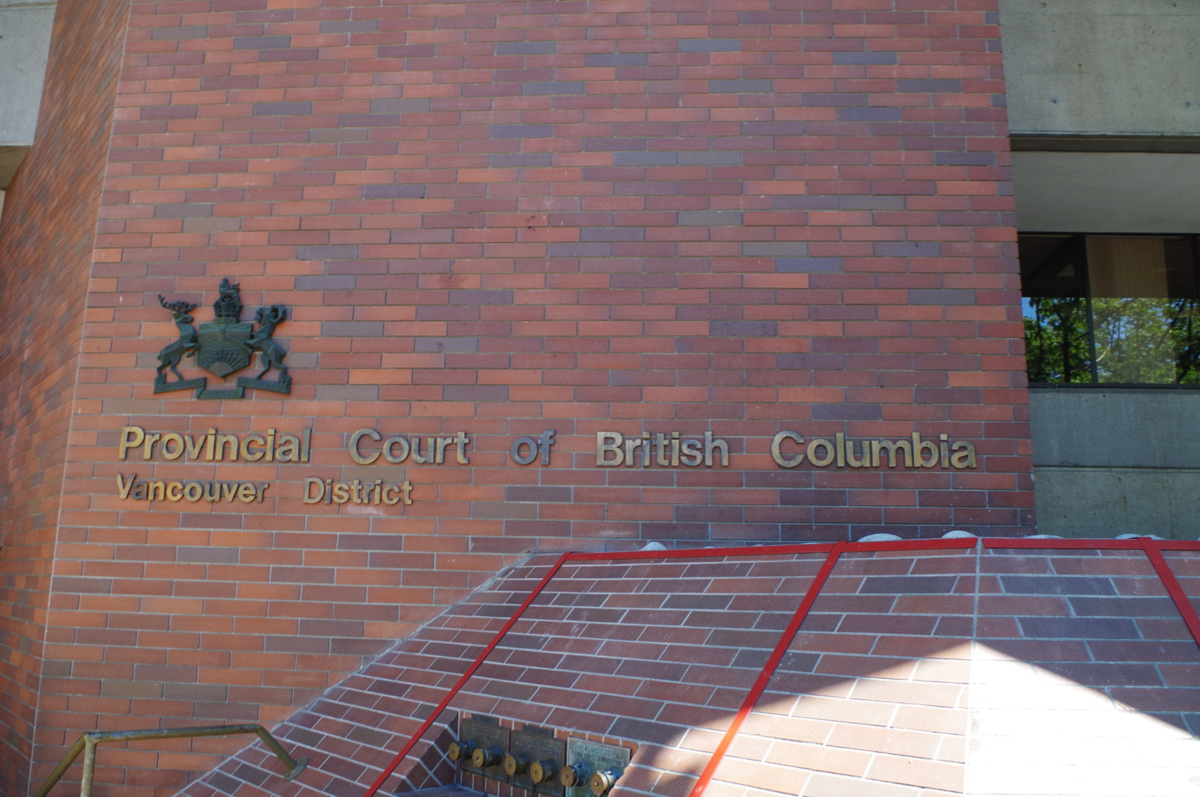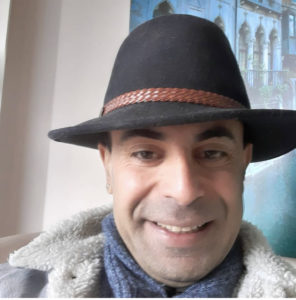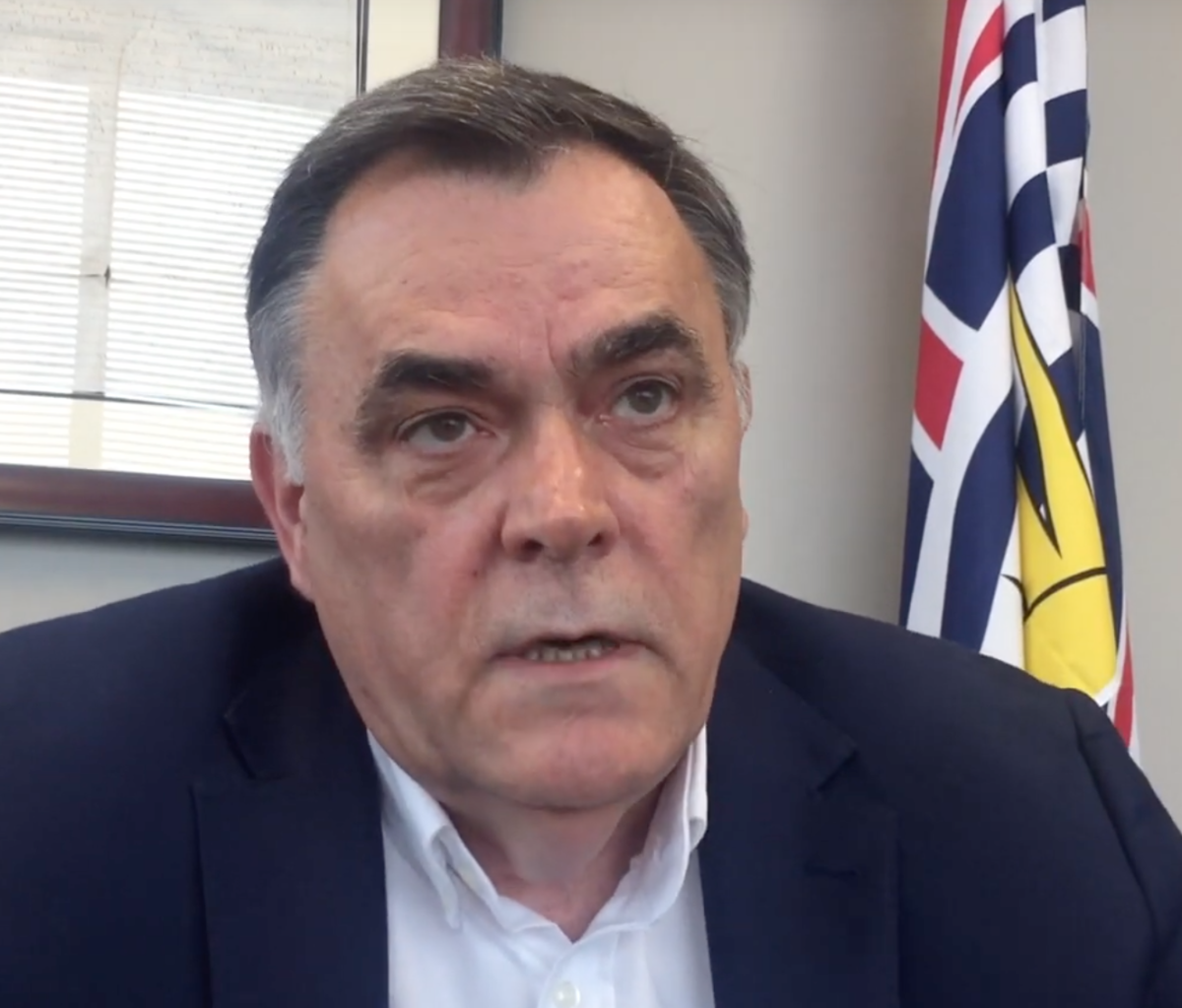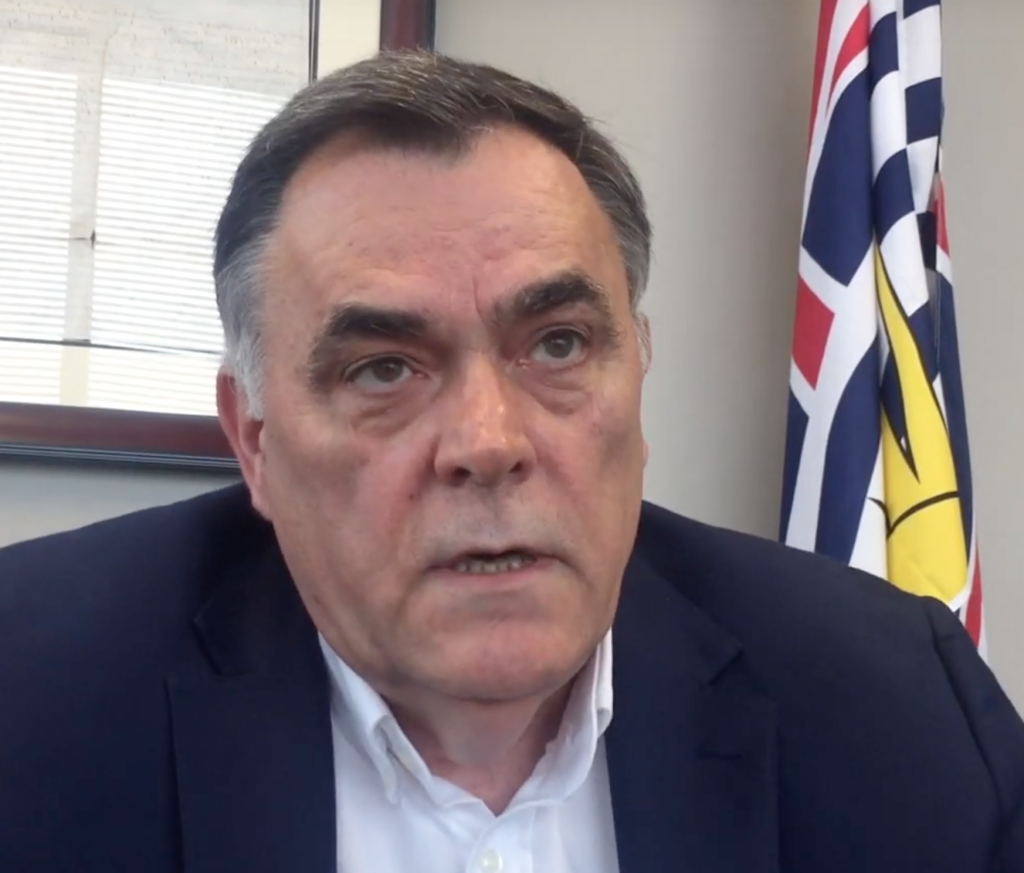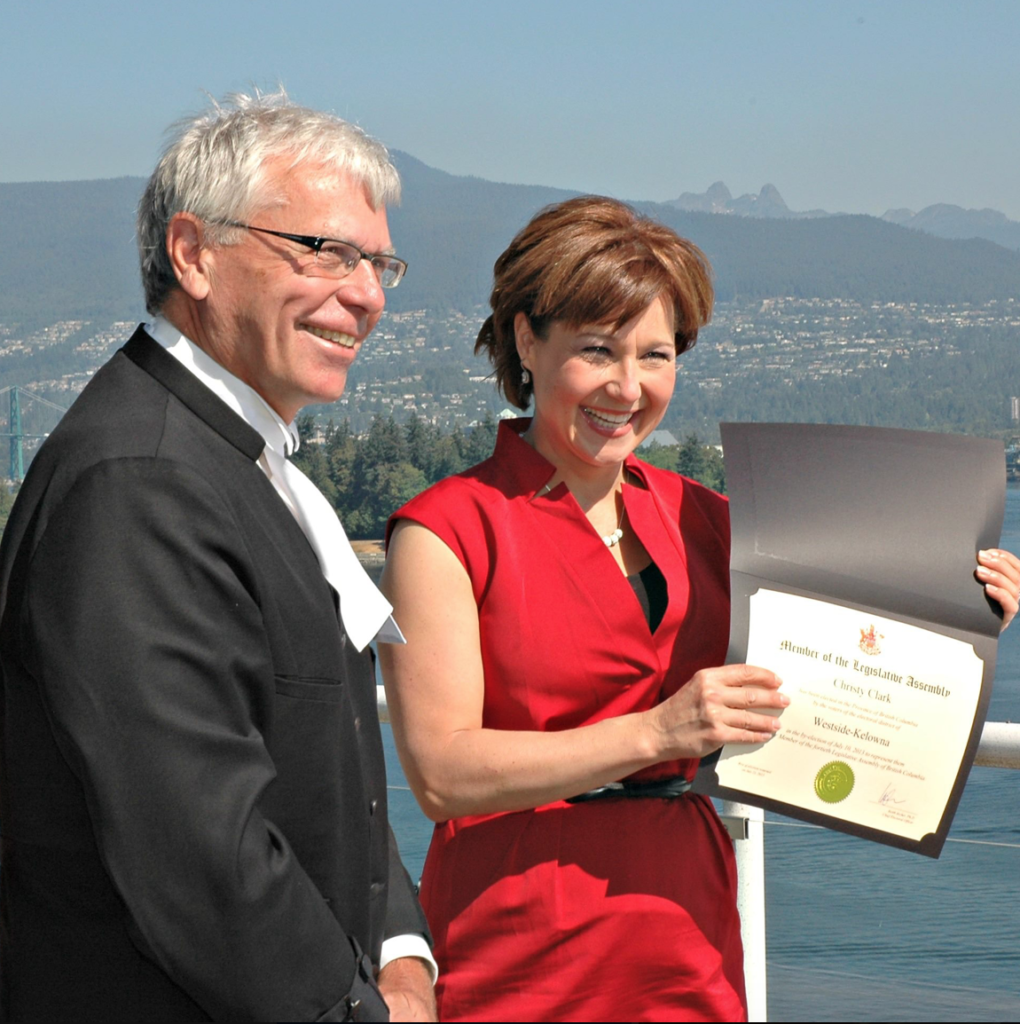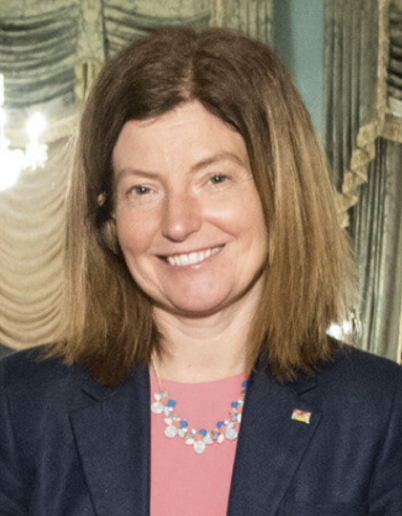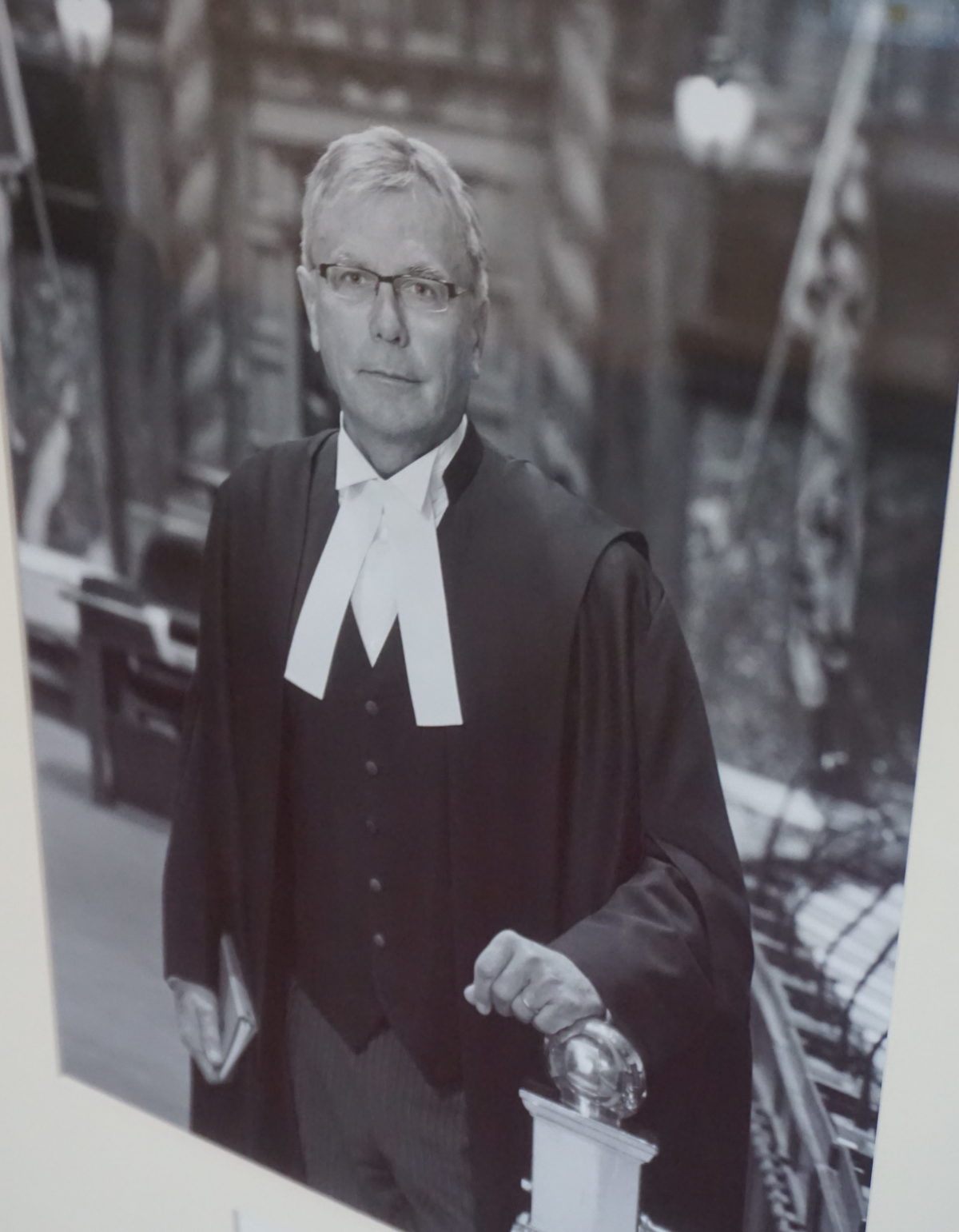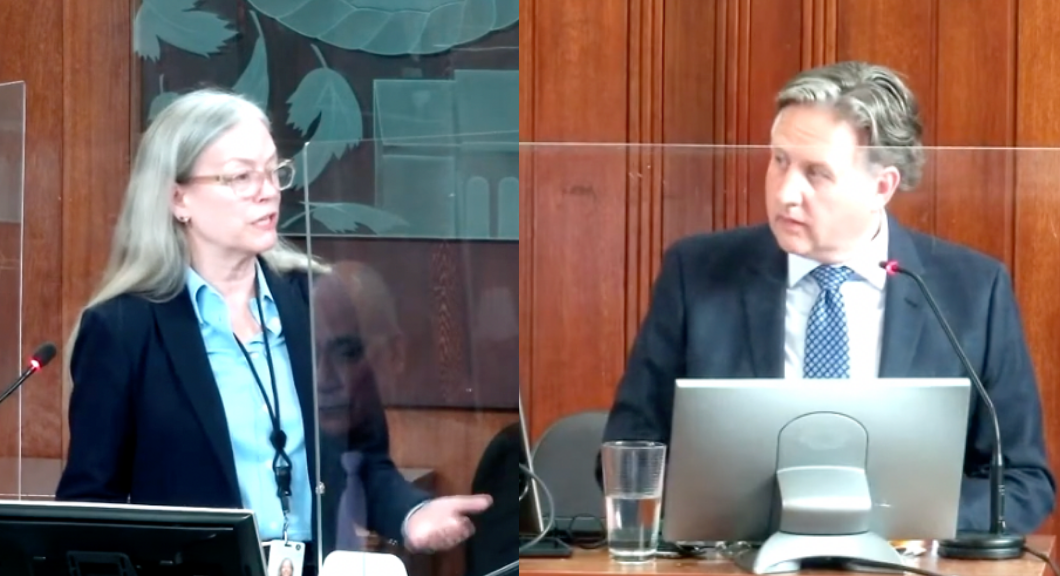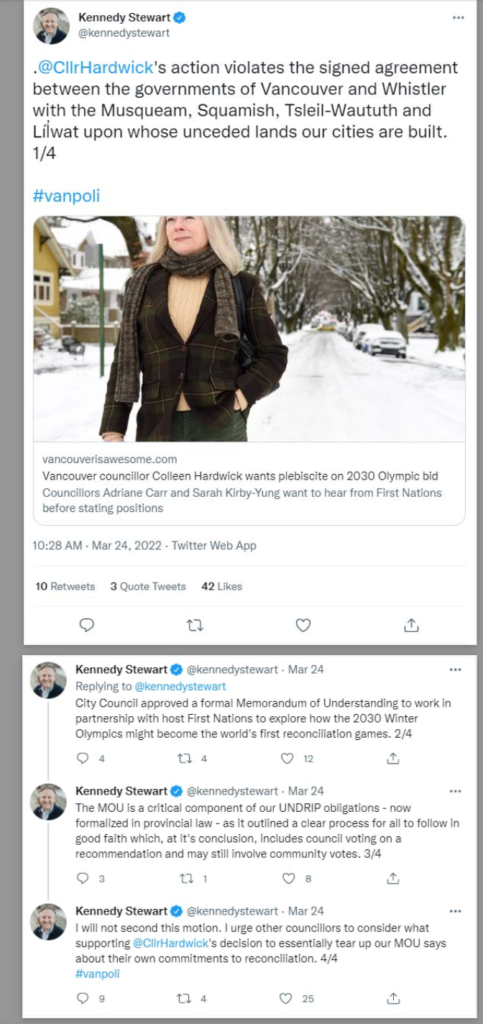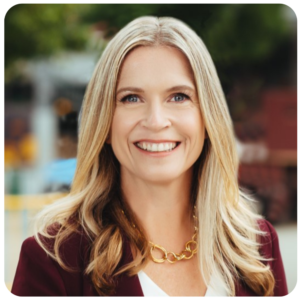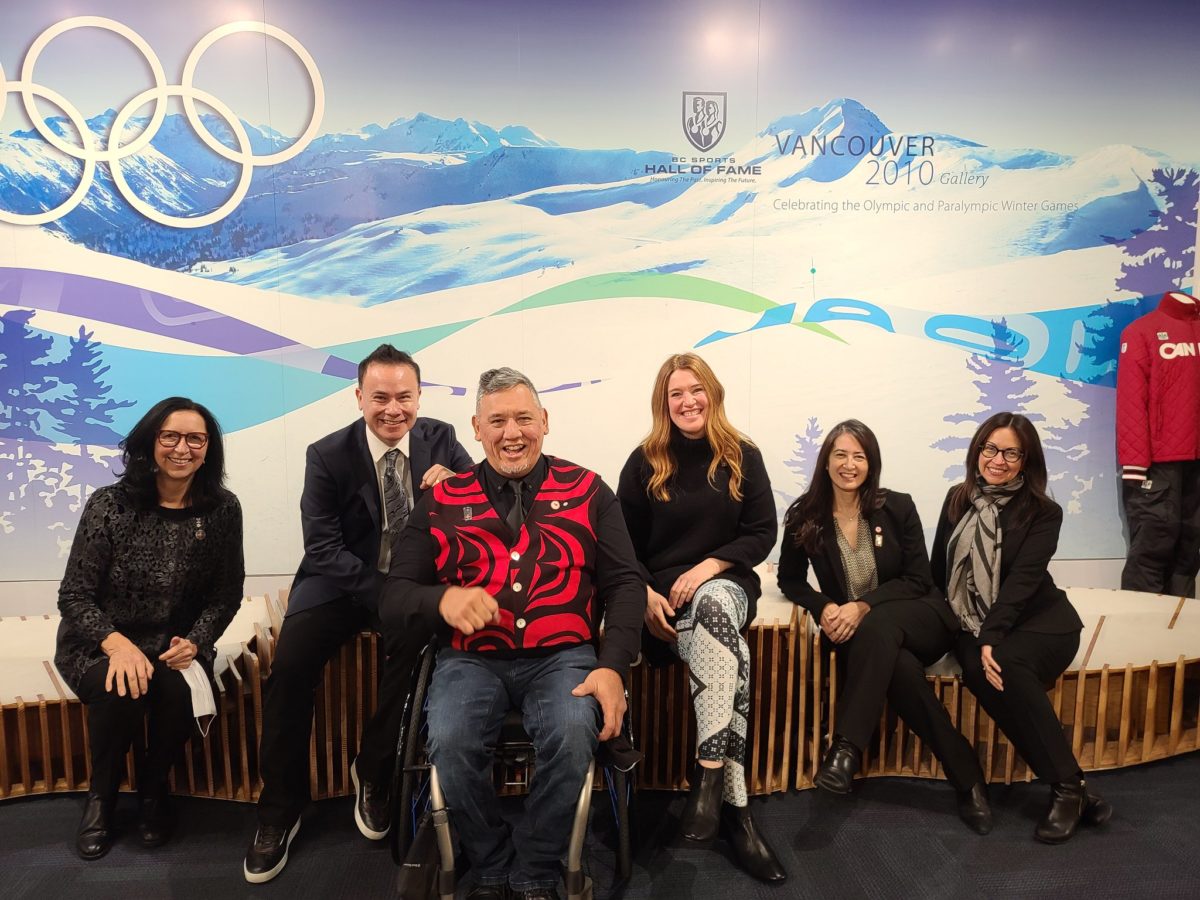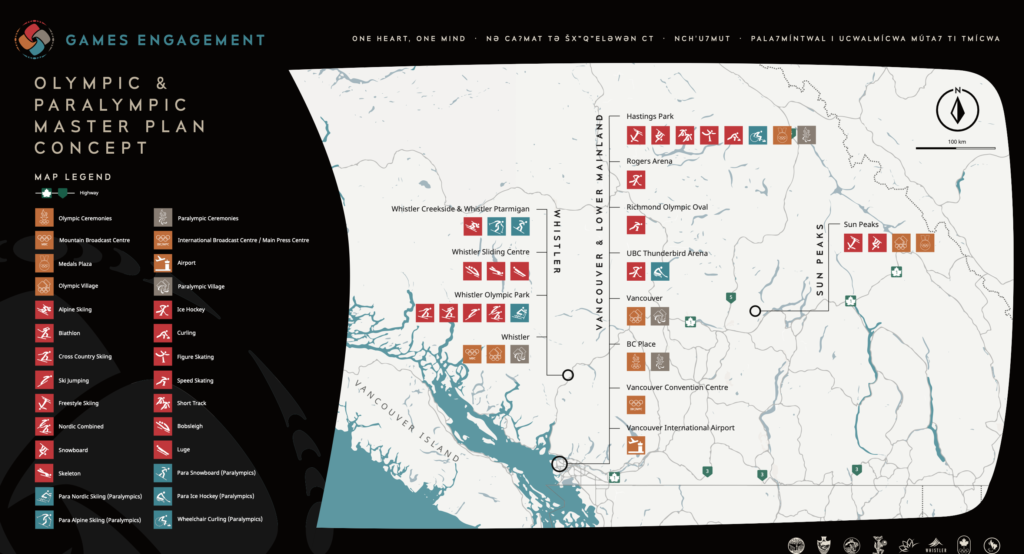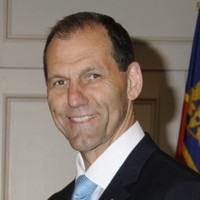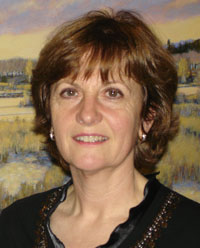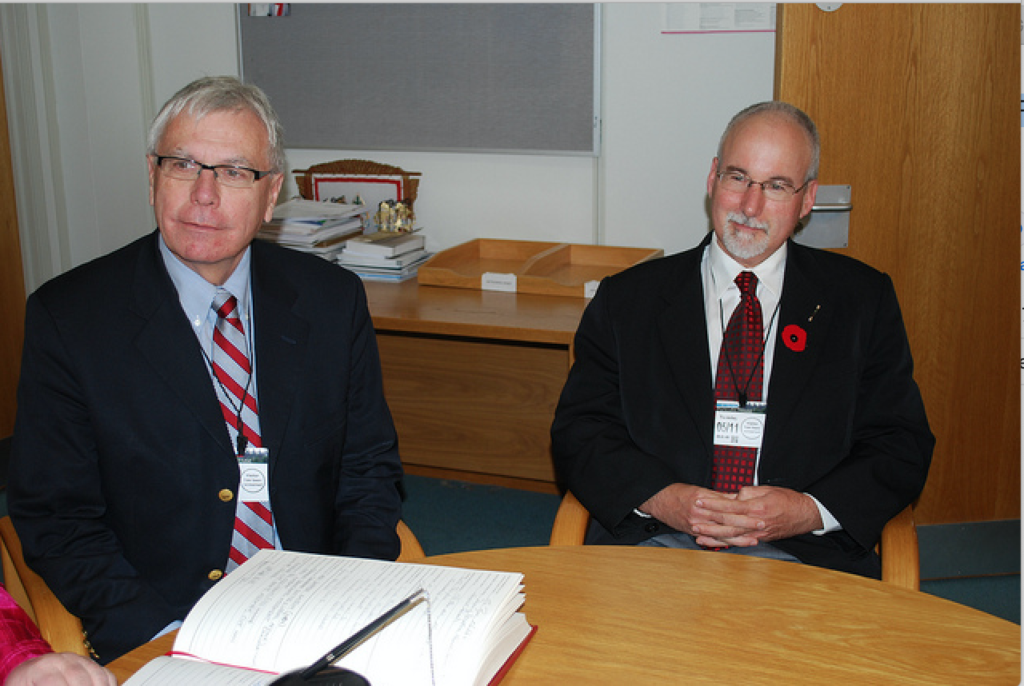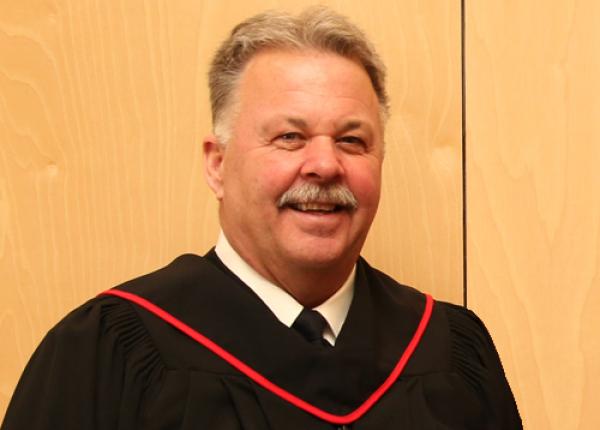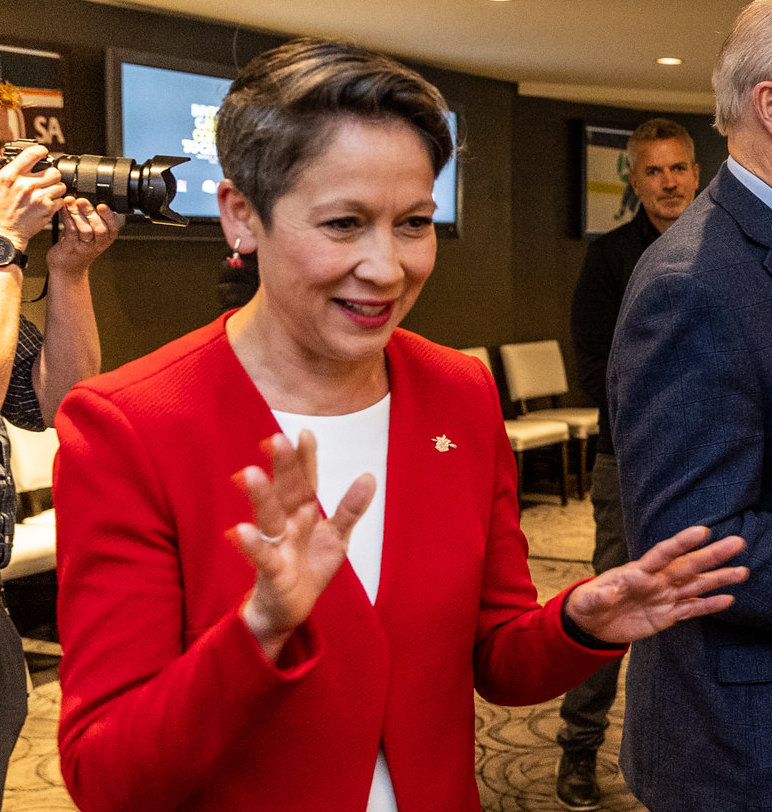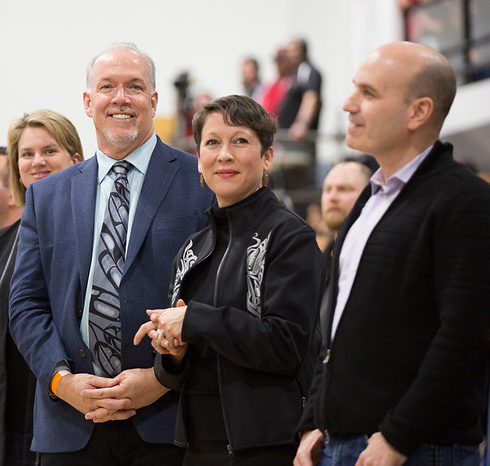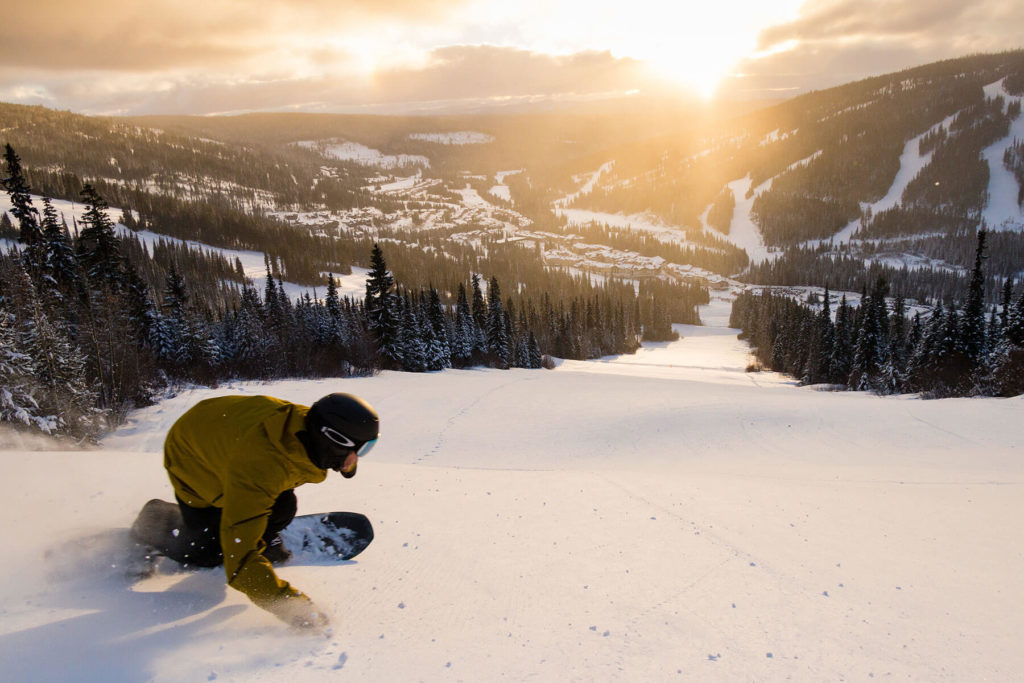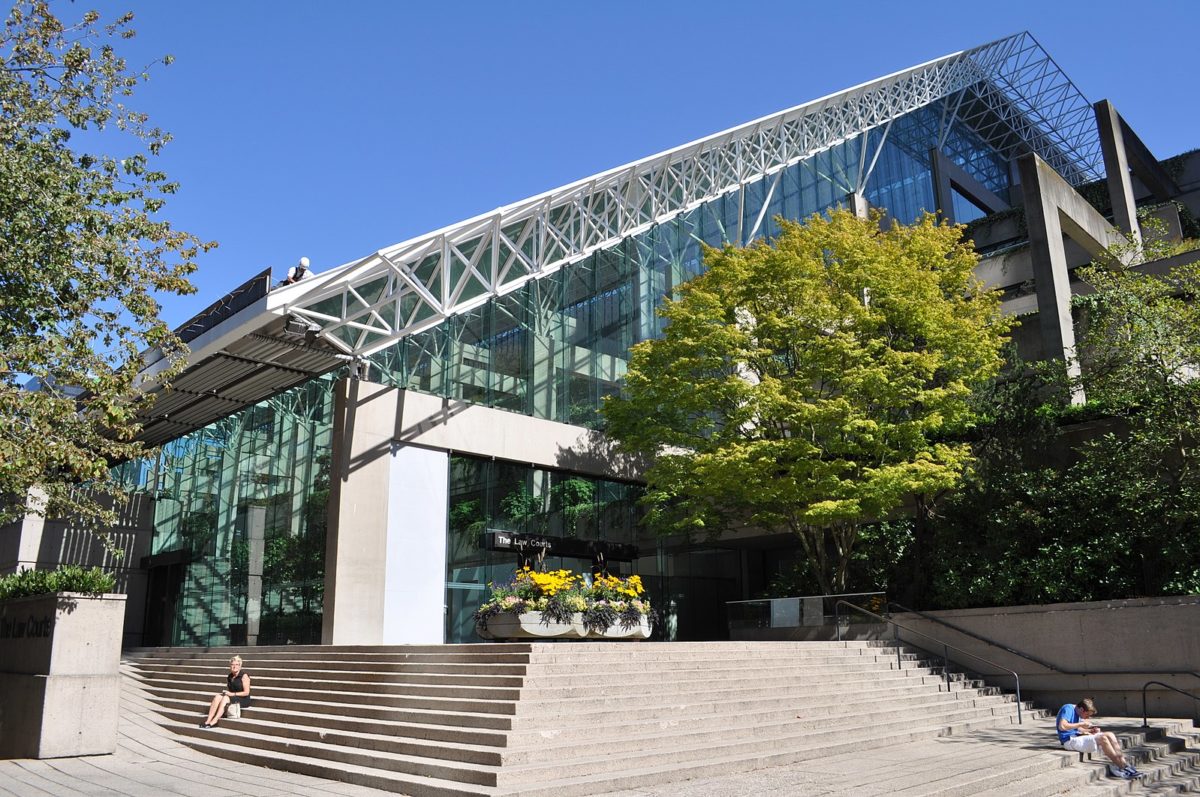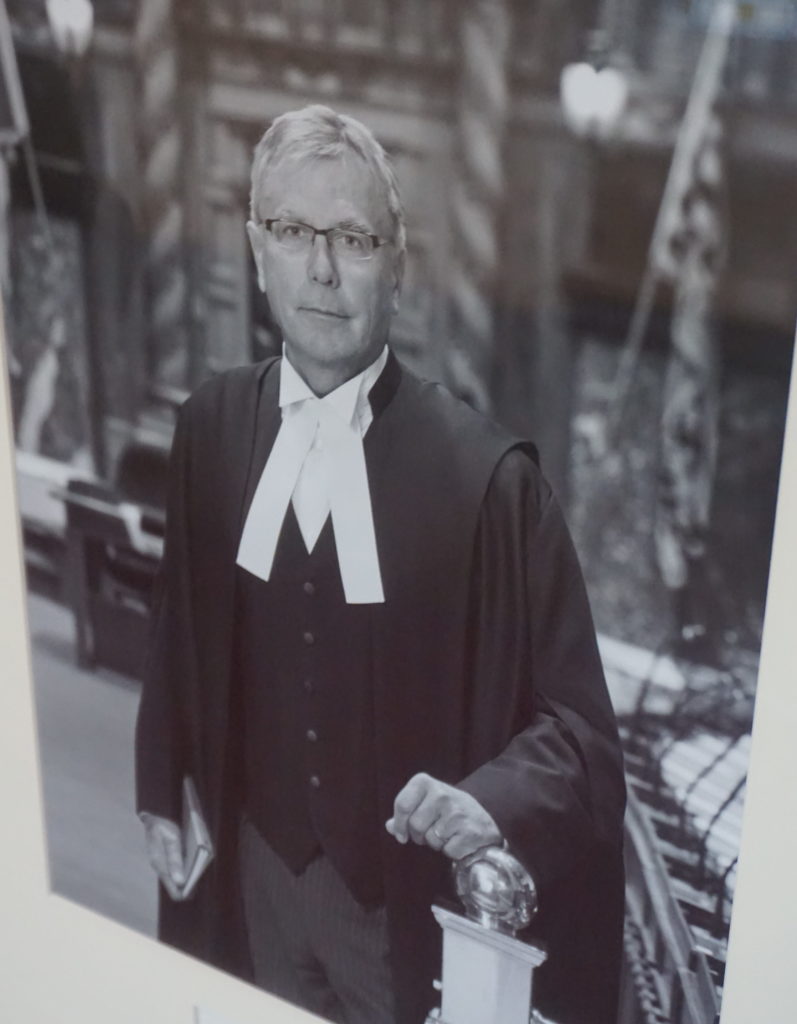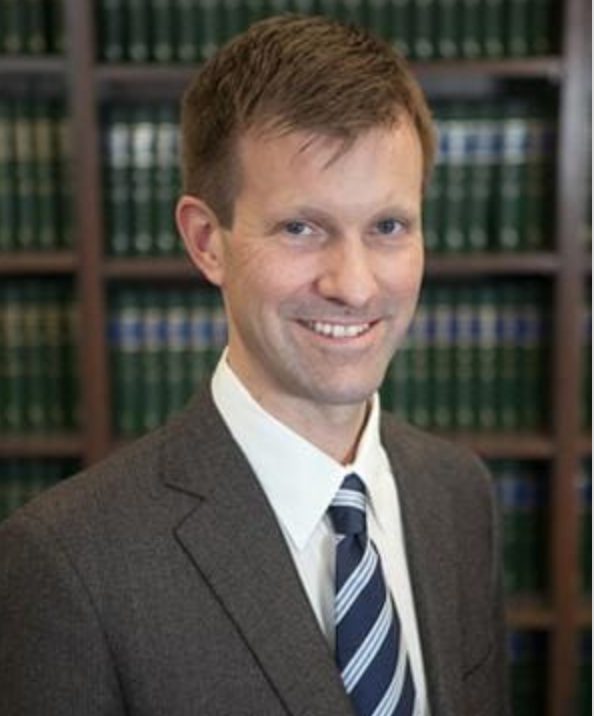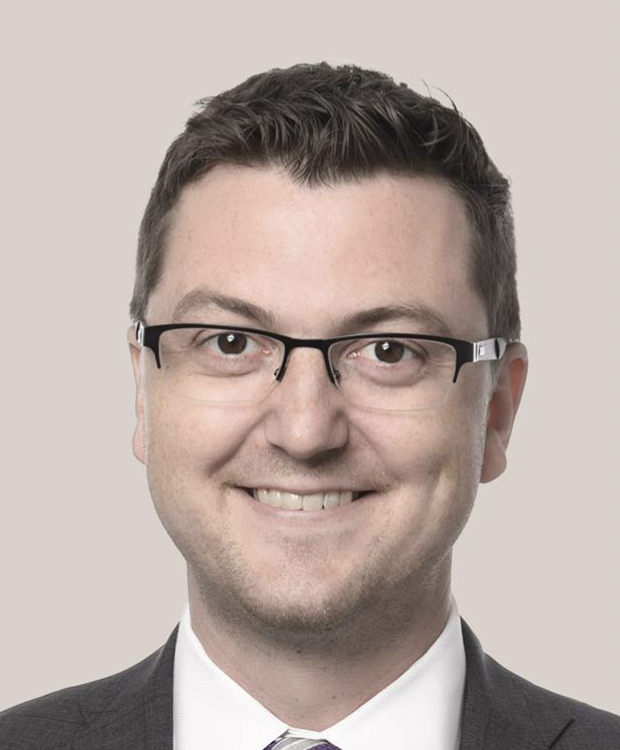Vancouver 2030 Winter Olympics bid on thin ice: Deputy city manager’s report
Bob Mackin
The proposal to bring the Winter Olympics back to Vancouver in 2030 is in trouble.
Deputy Vancouver city manager Karen Levitt’s report to city council’s July 20 policy and strategic priorities meeting says the lack of support from the federal and B.C. governments and civic staff fatigue means she cannot recommend whether to continue exploring another Olympics.

Deputy Vancouver city manager Karen Levitt (Vancouver.ca)
The Canadian Olympic Committee and its Four Host First Nations (FHFN) partners were hoping to gain formal city council support this month. But Levitt’s report to one of the last scheduled meetings before the Oct. 15 election raises four major concerns and she urges city council to get answers before deciding whether to back the bid.
“It is staff’s view that in order for council to provide such a negotiating mandate to staff, council would need to have a clear understanding of the proposed funding, operating, indemnification and governance models for the proposed B.C. bid. None of these are currently in place,” wrote Levitt, whose 32-year-career at 12th and Cambie includes serving as director of Olympic Games strategic planning.
The International Olympic Committee plans to name the host when it meets in Mumbai, India in May 2023. Salt Lake City and Sapporo are also pondering bids. Vancouver’s partners in the Host Nations Exploratory Assembly, which includes Resort Municipality of Whistler and the Musqueam, Squamish, Tsleil-Waututh and Lil’wat first nations, have not announced whether they formally back the bid.
“Per agreed process, this was to be the first step in determining whether all parties would collectively advance a B.C. bid,” said Levitt’s report.
Financial, indemnification and governance models are not yet known and there is no senior government guarantee to underwrite potential Games deficits. Federal sport hosting policy prevents Ottawa from financing major event deficits. For the 2010 Winter Olympics, the B.C. Liberal government acted as the guarantor, but the NDP government has said it is unwilling, so far, to do the same for 2030.
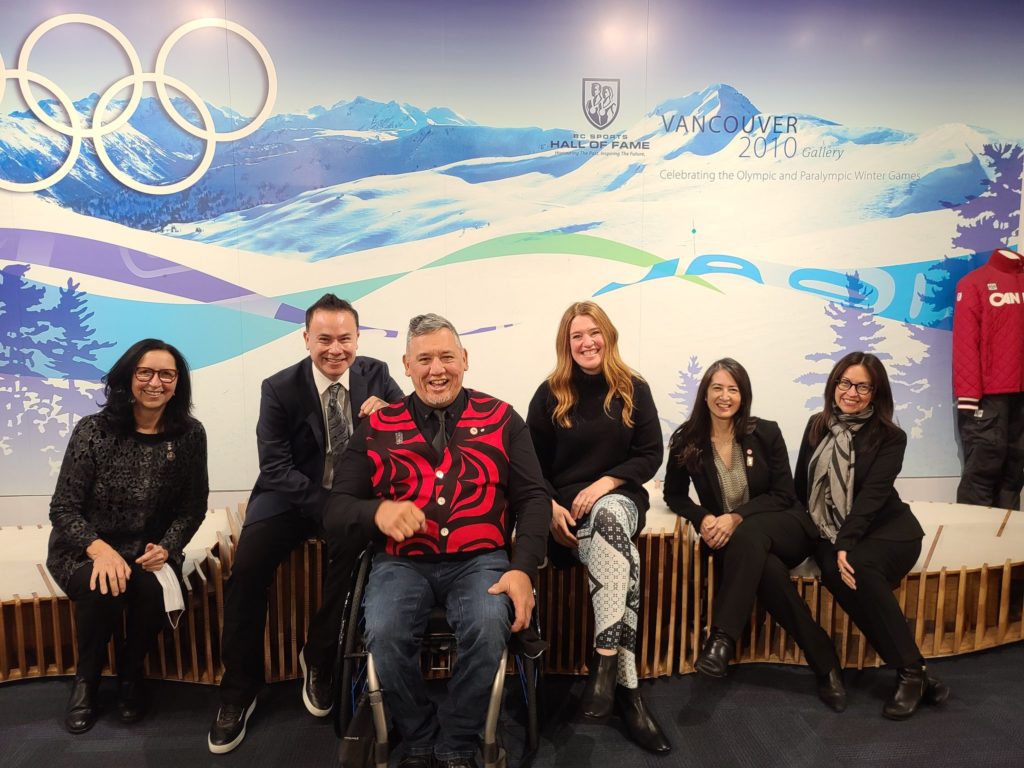
Canadian Olympic Committee president Tricia Smith (left) and Four Host First Nations executive director Tewanee Joseph (second from left) at the Dec. 10 bid exploration announcement (Twitter/Tewanee Joseph)
“The absence of a clear senior government commitment to indemnify the event represents a material difference in context for Vancouver, relative to the 2010 Games,” said Levitt’s report. “Given the magnitude of the potential liability, it would not be feasible for the city to sign on as Host City for the 2030 Winter Games without being appropriately indemnified.”
Levitt’s fourth major concern is the insufficient time to evaluate costs, benefits and risks to the city and to negotiate multiparty agreements by the COC’s deadline of December 2022.
In a June 24 letter to COC president Tricia Smith, Melanie Mark, the NDP’s Minister of Tourism, Art, Culture and Sport, set an Aug. 15 deadline for a mini business plan for the province to decide when it wants to back the bid. The COC had already been planning to make a formal proposal to B.C. and federal treasury boards in October.
One of Mark’s key requirements is to know how each of the municipal and first nations parties involved would share in costs and risks. She also wants to know how an organizing committee would be funded by the IOC and financed privately. So far, the Four Host Nations have only publicly committed to providing space at MST Developments’ Jericho Lands on which to build a new Vancouver Olympic Village.
Levitt’s report said city staff are “currently facing an unprecedented workload.” They are dealing with pandemic-related staff attraction and retention issues while working with organizers of the 2023 Laver Cup tennis tournament, 2025 Invictus Games and 2026 FIFA World Cup, and juggling large and complex files. Those include the Squamish Nation/Westbank Development Senakw services agreement, Vancouver Plan, Broadway Plan, Broadway Subway extension, plus homelessness, mental health and public safety issues. Another Olympics would require an all hands-on-deck approach, across all major departments at city hall, the Park Board and police and fire departments.
“While a comprehensive cost-benefit/implications analysis of potentially hosting the 2030 Winter Games has not been undertaken by staff, it can be stated that at this point in time, there are substantial concerns about the city’s staff capacity to actually take on a Host City role for the 2030 Winter Games, without significant investments in incremental staff resources.”
The COC estimates another Games would cost at least $4 billion, including $1 billion to $1.2 billion from taxpayers. The estimate did not include essential services, such as those required from municipal governments.
The COC proposes hosting the 2030 Games at most of the venues that were used for Vancouver 2010, except for curling, big air and medals concerts at Hastings Park and snowboarding and freestyle skiing at Sun Peaks resort near Kamloops.
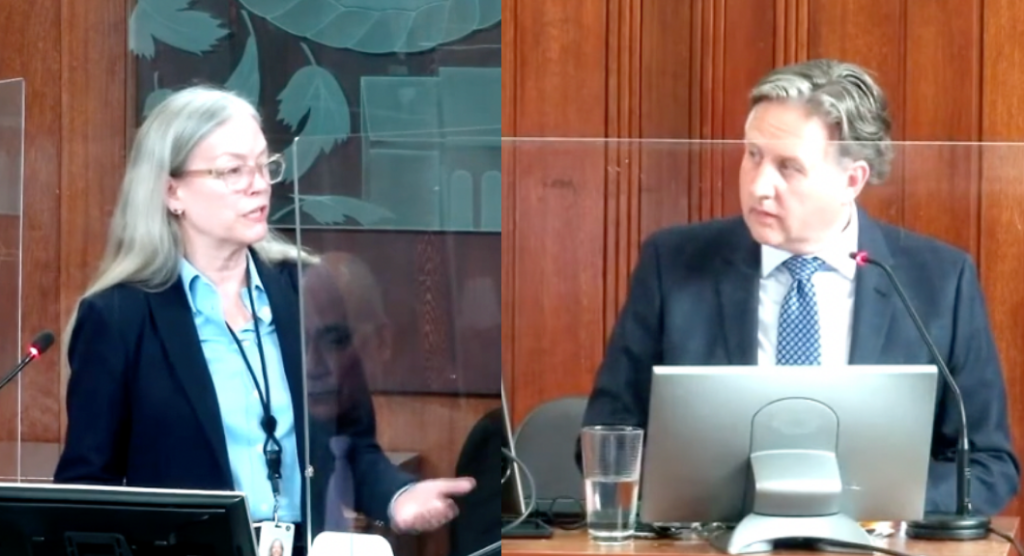
Coun. Collen Hardwick (left) and Mayor Kennedy Stewart at the April 12 city council meeting (City of Vancouver)
The COC privately discouraged each municipal and first nations bid partner from holding a referendum this year, because it feared that would spoil its chance to enter closed-door negotiations with the IOC under its new procedure for awarding the Games. In April, Coun. Colleen Hardwick unsuccessfully proposed a plebiscite be added to the October election ballot. Mayor Kennedy Stewart was found in breach of the code of conduct for Tweets that wrongly accused Hardwick of violating a non-binding agreement with Whistler and FHFN.
The total all-in cost of building and staging the 2010 Games was estimated at $8 billion. The biggest operational line item was the RCMP-led security, at almost $1 billion. City taxpayers spent $554.3 million, not including the bailout of the $1.1 billion Olympic Village, which was finally paid-off in 2014. Vancouverites were left with three new or renewed community centres, a new convention centre and the Canada Line, but the true costs are unknown.
B.C.’s Auditor General did not conduct a post-Games audit and the 2010 organizing committee, known as VANOC, was not governed by the freedom of information law. VANOC transferred its board minutes and financial documents to the Vancouver City Archives under a contract that says they are not to be made public before fall 2025.
Support theBreaker.news for as low as $2 a month on Patreon. Find out how. Click here.
Bob Mackin The proposal to bring the Winter






